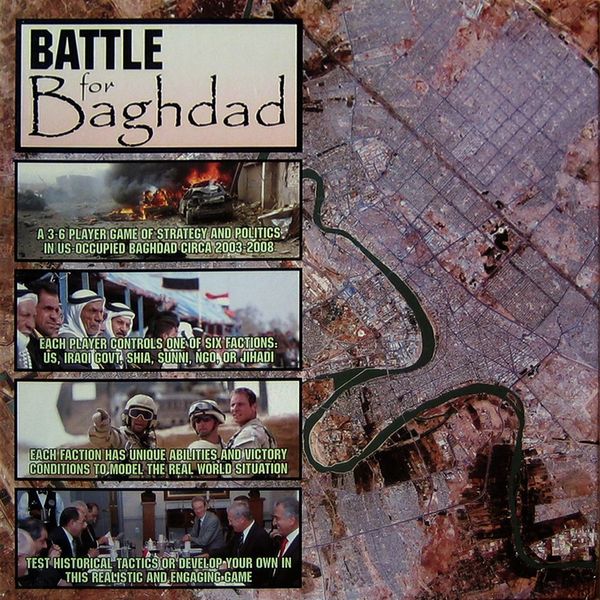Battle for Baghdad (2009) Board Game
Battle for Baghdad is a board game that was released in 2009, designed by Michael Anderson. The game is set in modern-day Baghdad during a fictional civil war scenario. Players take on the roles of different factions vying for control of the city, using various tactics and strategies to outmaneuver their opponents.
Game Components of Battle for Baghdad
How To Setup Battle for Baghdad
To set up the game, players first select their factions, each with unique victory conditions and capabilities. The game board is laid out, and cards are shuffled and distributed according to the game’s rules. Players then engage in an initiative bidding phase to determine the order of play and allocate political clout. Alliances can be formed during this phase, which are binding throughout the game turn.
Gameplay Mechanics and Game Objective
Player Experience
Playing **Battle for Baghdad** is akin to navigating a complex web of political and military strategies. The game thrusts players into the chaotic environment of post-invasion Iraq, where forming alliances, managing resources, and making strategic decisions are crucial. It is more like a game of poker than chess, where adaptability and negotiation skills are as important as military prowess.
Pros
Cons
Personal Thoughts on Battle for Baghdad
**Battle for Baghdad** is ideal for those interested in complex strategy games, particularly those with a background or interest in political science, international relations, or military history. It is a great tool for educational and training purposes, as it forces players to think critically about coalition politics and resource management. However, it may not be the best fit for players seeking a purely military simulation or a light, casual gaming experience.
We are supported by our audience. When you purchase through links on our site, we may earn an affiliate commission, at no extra cost for you. Learn more.

